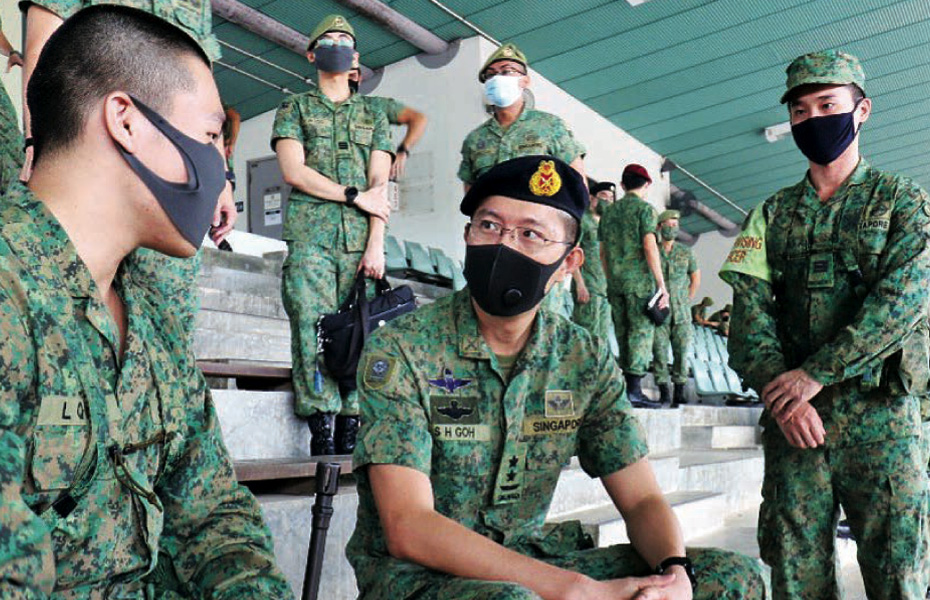While the SAF found ways and means to adapt and remain effective, the battle against the virus was not an easy one because of the virus's ever-changing nature. But BG Neo was confident that the SAF, with its ability to sense-make and stay nimble, would have an edge against this constantly evolving “enemy”.
In combat, the SAF is trained to fight against an enemy that moves quickly and is constantly evolving, and the COVID-19 virus is no different.
BG David Neo, DJO
Operating amidst significant uncertainty, the SAF developed new plans and measures anchored on data and empirical evidence to stay effective; it was in the military's DNA to always be prepared. Many ground commanders ran table-top exercises to stress-test contingency plans against a range of COVID-19 scenarios. This enabled the SAF to act quickly and decisively whenever positive cases emerged among service personnel, sometimes even before the health agencies had decided on what course of action to take. In fact, when the first case emerged in the SAF in February 2020, JOD was ready to respond with measures developed by the SAF to mitigate the spread of the disease, which went beyond the national guidance at the time.

SAF personnel in COUs, like SSG Loh Yong Han, 2IC of an Explosive Ordnance Disposal Section, isolated in camp before performing their operational duties.
Source: MINDEF
Equally, if not more important, was the commitment of our soldiers, sailors, and airmen. Right from the beginning, the SAF leadership had emphasised the importance of good communication along the command chain and the need to keep every serviceman and servicewoman up to date on what the SAF was doing in its fight against COVID-19. This not only helped to keep all our people engaged but also highlighted to them the important roles that they played, both individually and collectively.

Chief of Army (COA) MG Goh Si Hou engaging recruits at Basic Military Training Centre (BMTC).
Source: MINDEF
There was also a culture shift, as the SAF encouraged our people to develop socially responsible behaviours, such as seeking medical attention early and staying at home for suspected illnesses.